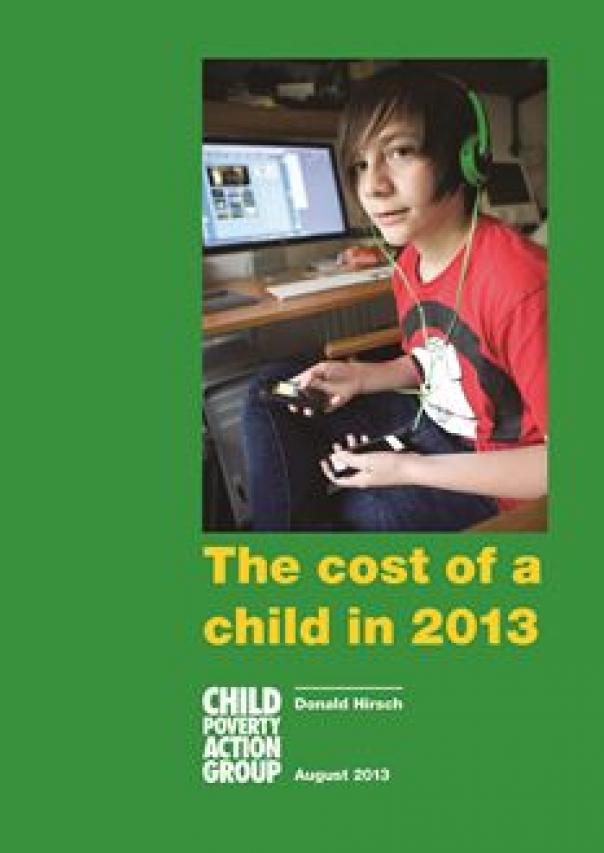Child poverty report highlights universal credit concerns

According to new research from the Child Poverty Action Group, (CPAG) families are struggling as the cost of raising children has hit almost £150,000. The research, co-funded by the Joseph Rowntree Foundation, found that costs had risen by 4% in the last year alone.
The report also found that the introduction of universal credit from October this year will have mixed results for families. However, for both couple and lone parents working full time on the minimum wage, the new system will still leave them some way short of an acceptable standard of living.
Alison Garnham, chief executive of CPAG has called on the government and opposition to take action saying: "As we move towards a 'living standards election', now would be a good time to renew our national commitment to all our children."
Key findings from the research:
* It now costs a minimum of £148,000 in total to bring up a child to age 18 and meet their minimum needs, which is around £160 a week (averaged for a child across all ages and including childcare costs and housing).
* The minimum necessary cost for raising a child rose by 4% in 2013, while safety net benefits for families and children only rose by 1%, the minimum wage rose by 1.8%, average earnings rose by 1.5%, and child benefit did not rise at all.
* The value of both child benefit and child tax credit relative to the costs of raising a child has decreased in the last year. Many low-income families have also seen cuts in housing support with the introduction of changes such as the 'bedroom tax'.
* At the same time, working families have had to contend with rapidly increasing childcare costs (which have increased at 5.9% in the last year) while many non-working families are now required to pay council tax.
* Minimum wage families face a growing shortfall for the spending their children need. Families working full time on the national minimum wage now have only 83% (couples) and 87% (lone parents) of the minimum income needed to support their families.
* Families receiving out of work benefits face even greater shortfalls of income. Couple families receive only 58% of the income they require to cover minimum costs, while lone parents get 61%.
* The introduction of universal credit from October this year will have mixed results for families. However, for both couple and lone parents working full time on the minimum wage, the new system will still leave them some way short of an acceptable standard of living.
* Families with children tend to fall lower down the income distribution and be at higher risk of poverty than those without. This is partly explained by the costs set out in this report. These additional costs hit families at the same time as 'time costs' and childcare costs prevent parents from earning more.
Garnham added: "This research paints a stark picture of families being squeezed by rising prices and stagnant wages, yet receiving ever-diminishing support from the government over the course of the last year.
"Every parent knows it's getting harder to pay for the essentials their children need, and they don't feel like politicians see them as a priority. Child benefit and child tax credit have been cut at the very time families need them most. Families are getting worse off and parents know it.
"If every child in Britain can grow up healthy, well-educated and an active participant in their community, we all benefit from a more prosperous economy. This was well understood by the post-war generation who prioritised universal benefits for all children despite being much deeper in debt than we are today.”
Katie Schmuecker, policy and research manager at Joseph Rowntree Foundation, which co-funded the research study added: "This research looks at how much it costs parents to give their children a standard of living that the public think is the minimum acceptable.
“The task of making ends meet for families with children has always been hard, but is getting harder, and balancing family budgets has become a perilous and delicate act for hard-pressed parents.
"Flat lining wages, cuts to benefits and tax credits and the rising cost of essentials is creating a growing gap between income and needs.
"The next election is likely to be the first since the 1930s where living standards are lower than the last poll. All parties must go to the country with policies and a commitment to help the prospects of low-income families.
"The risk and costs otherwise are enormous. Child poverty costs the Treasury £29bn a year - a price we can scarcely afford to pay, particularly in the current economic context."
